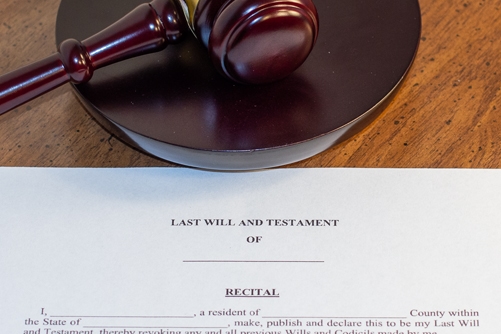Contesting a Will in Michigan
Contesting a will means formally challenging the validity of either the entire will, or certain parts of the document. When successful, there are several actions the court may take. These actions include: disallowing parts of the will while leaving certain provisions intact, disallowing the will in favor of a previous document, or the court may consider the will invalid altogether. The contesting of wills are done in probate court; therefore, If you believe there’s valid grounds to dispute the validity of a will, or you’re being wrongfully challenged by another party, it’s vital to enlist the help of a probate lawyer who’s experienced with Michigan wills.
Sean J Nichols, PLLC is a highly rated probate law firm with extensive experience in Michigan will contests. If you or a loved one have legal issues involving wills or probate court, contact our office today. (734) 386-0224
Reasons For Contesting a Will

Sometimes, when an individual passes away, the probate court judge appoints a personal representative to oversee the distribution of assets from an estate. When someone contests a will, the probate judge will oversee litigation. The judge will then conduct a trial in order to determine the validity of the will.
It’s important to note, there has to be valid legal grounds in order to contest a will. Simply disputing a will because the division of assets or inheritance is “unfair,” is not sufficient grounds to support the dispute of a will. That being said, there are several instances where a will can be disputed in a court of law. These disputes include:
Validity – One of the most common reasons for challenging a will involves disputing the validity of the document. For example, if the will was not signed, was improperly witnessed, or was not properly notarized, the document may be considered invalid. It’s important to note, that even a small mistake in the will may result in the document being declared invalid by the court.
Authenticity – Similar to validity, disputes over authenticity can occur. For instance, if the document was forged, or an older document was submitted to the court that is not the most recent iteration, the authenticity of the will may be challenged and declared invalid.
Fraud – Another reason for will disputes involves fraudulent activity. One example of fraud is somebody intentionally tricking an individual into changing provisions of the document. Another example of fraud is someone misrepresenting the content of the document in order to obtain a signature. These kind of disputes are fairly difficult to prove as they require evidence of intentional, fraudulent activity.
Mental incapacity – When someone executes a will, they must do so with a “sound mind.” This means, they must possess the mental capacity to understand the assets, beneficiaries, effects of the document. If it’s proven in court that an individual lacked the mental capacity while executing a will, then the document will be considered invalid. Mental incapacity may include: Alzheimer’s, dementia, brain injury, stroke, or other forms of illness/disability.
Diminished mental capacity – Another form of “mental incapacity” occurs when the individual is under the influence of drugs or alcohol while signing the will. Simply put, even when a person has an otherwise “sound mind,” sobriety is required for a signature to be considered valid. It’s important to note, this includes prescription medication.
Plymouth Law Firm For Wills and Probate
The law office of Sean J Nichols, PLLC is located in Plymouth, MI. Our firm is very familiar with Michigan’s probate process, in particular, our lawyers are experienced in the Probate Courts of Wayne County and Oakland County. Although this is our local area, we commonly work with clients all throughout Michigan, and even clients located outside the State. Therefore, if you have issues regarding contesting a will in Michigan, call our offices today.
